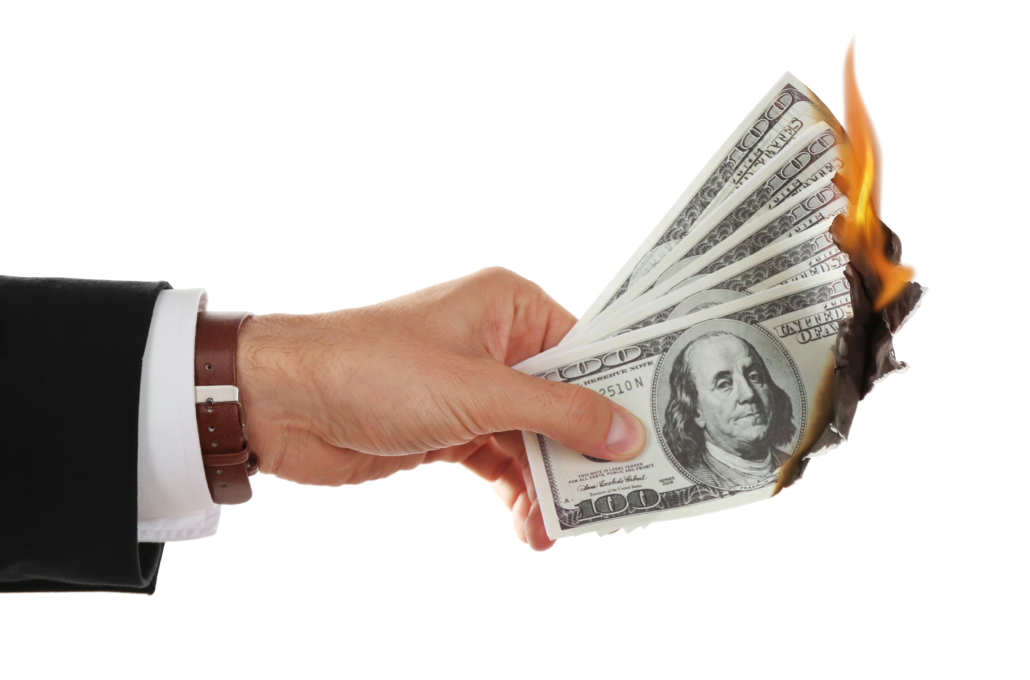Congratulations on your newfound wealth! Hold your fire if you’ve ever had the tempting thought of setting a stack of cash ablaze! It turns out that burning money is not only financially unwise but also illegal in the United States. So, why is it illegal to burn money, you may wonder? Let’s delve into the reasons behind this prohibition and the potential consequences one might face for such an act.
The roots of the laws prohibiting the burning and defacement of currency in the United States can be traced back to the government’s historical use of precious metals in coin minting. In the past, criminals would alter coins by filing them down or cutting off portions, keeping the valuable slivers for themselves while spending the modified currency. To deter such fraudulent activities and protect the integrity of the monetary system, laws were established to criminalize the defacing and debasing of coins.
Interestingly, these laws also extend to paper currency. Even tearing a dollar bill or attempting to flatten a penny beneath the weight of a locomotive on railroad tracks can land you in hot water with the law. While the odds of facing prosecution under these federal laws are relatively slim, there are still potential penalties one could face, including imprisonment for up to 10 years and substantial fines.
However, it’s worth noting that the likelihood of being prosecuted for burning money or defacing coins has diminished over time. Modern coins contain minimal amounts of precious metals, reducing the incentive for criminals to engage in coin alteration. Moreover, when defacing printed currency, such as burning it as a protest, certain situations invoke comparisons to burning the American flag. In this context, burning money may be deemed protected speech under the First Amendment of the U.S. Constitution.
Why Is It Illegal To Burn Money?
Have you ever wondered about this query: why is it illegal to burn money? It may seem strange, as burning paper might not appear to be a significant offense. However, there are several reasons why governments consider it unlawful to intentionally destroy legal tender intentionally.
First and foremost, money serves as a crucial tool in the economy. It represents a nation’s wealth and acts as a bridge of exchange for goods and services. The government is responsible for regulating and maintaining the currency’s stability, ensuring it retains its value over time. Deliberately burning money disrupts this delicate balance and can adversely affect the economy. If people were free to burn money at will, it could decrease the overall money supply, resulting in inflation and economic instability.
Additionally, destroying money undermines individuals’ faith and trust in the currency. People become skeptical about its reliability when money loses value or is destroyed. Confidence in the currency is crucial for economic transactions to function smoothly. If people lose faith in the currency, they may resort to alternative forms of exchange or seek refuge in other currencies, causing disruptions in the economy.
Moreover, counterfeiting is a significant concern for governments and central banks. Authorities can differentiate between legitimate and counterfeit bills by making it illegal to burn money. If burning money were permitted, counterfeiters would be able to dispose of their fake currency without consequence, making it difficult to detect and combat fraudulent activities.
Finally, there is a symbolic aspect to the illegality of burning money. Money is a representation of value and hard work. It symbolizes the collective effort of a nation’s citizens and their contribution to the economy. By criminalizing the destruction of money, society reaffirms the importance of valuing and respecting the efforts required to generate wealth.
Is Cutting Money Also Illegal or Not?
It is not against the law to physically damage money, as long as it is done legally and for certain purposes.
For instance, cutting paper bills to cancel or render them unusable is perfectly legal. This can be done to ensure that the bills are taken out of circulation and not mistakenly used again.
Similarly, cutting a coin in half to verify its genuineness is also allowed. This can be done to demonstrate that the coin is indeed authentic and not a counterfeit.
However, it is important to note that cutting paper money into smaller pieces and intending to use those pieces as a substitute for regular currency is illegal. Such an act is considered counterfeiting, which means creating fake money, and it is a serious offense under the law.
Counterfeiting is strictly prohibited because it undermines the integrity and trustworthiness of the monetary system. By creating counterfeit money, individuals can deceive others and gain financial benefits dishonestly. As a result, there are severe legal consequences for those involved in such activities.
Final Words: Why Is It Illegal to Burn Money?
To summarize, while damaging money in certain ways is permissible, cutting paper money into smaller pieces for the purpose of using it as currency is illegal. This is because it is considered counterfeiting, a crime punishable by law due to its potential to deceive and undermine the financial system.


























